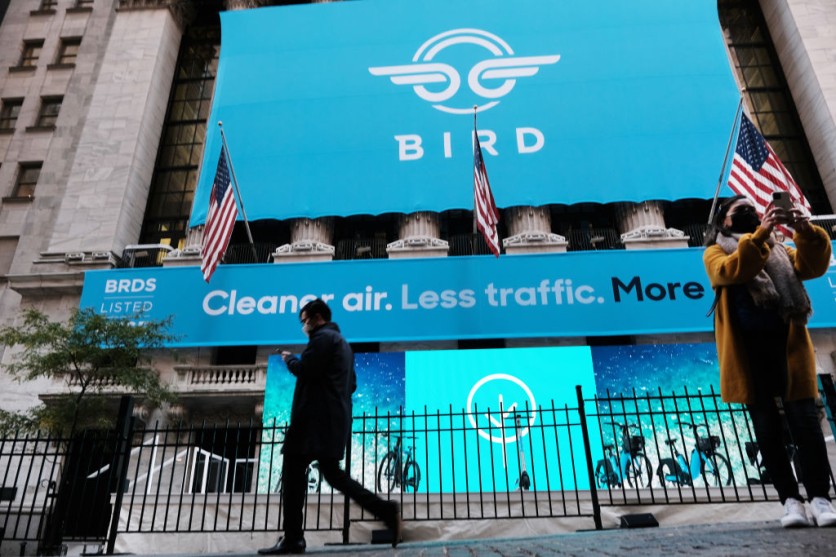Bird, an electric scooter and bike rental company, said the New York Stock Exchange (NYSE) will suspend trading of its stock. Before the pandemic, electric scooter and bike rentals emerged as a popular substitute for public transportation aside from ride-sharing services.
During this period, venture capitalists invested heavily in all sorts of growth industries, even disregarding their lack of profitability.

Bird Halting Trade of Stocks
Bird disclosed on Friday that the NYSE will halt trading of its stock. CNBC reported that this decision comes in the wake of Bird's inability to maintain a market capitalization exceeding $15 million for a continuous 30-day period.
Effective Monday, Bird's shares will be traded on the over-the-counter (OTC) exchange, as stated in its official announcement.
The company has successfully secured over $500 million in funding and achieved a valuation of $2.5 billion during a 2019 funding round led by Sequoia Capital.
However, the arrival of the COVID-19 pandemic in 2020 significantly disrupted Bird's operations as cities worldwide implemented lockdown measures.
Declining Value
While growth gradually resumed in 2021, the previous exuberant expansion had subsided. In the same year, Bird made its public debut through a merger with a special purpose acquisition company (SPAC).
However, the company's financial performance showed a persistent decline. Bird's net loss surged from $215 million in the previous year to $359 million in 2022.
Despite this, revenue managed to grow by 28%, reaching a total of $245 million during that period. The company's stock has experienced a substantial decline in value this year, plummeting by 80%.
By the end of the week, it was valued at just 90 cents per share, resulting in a market capitalization of $11.6 million. This decline prompted a reverse stock split of 1-for-25, a strategic move aimed at elevating the stock's trading price back above the $1 mark.
Read Also : Bird: Scooter Rental for Persons with Disabilities to Launch Pilot Program in New York City
Bird's Defense
Bird believes that the current market capitalization does not accurately represent the inherent worth of its business, according to Business Wire. Consequently, it plans to challenge the NYSE's determination through an appeal process.
If successful in this endeavor, the NYSE will reinstate trading of the company's Class A common stock. In the interim, the company will maintain its listing on the NYSE.
Suppose the NYSE's suspension of the company's Class A common stock continues, the company has made arrangements for its Class A common stock to be traded on the OTC exchange, which is operated by OTC Markets Group Inc., commencing next week.
Bird is committed to upholding rigorous adherence to the SEC regulations applicable to public companies and complying with all NYSE listing prerequisites.
In June, Bird CEO and founder Travis VanderZanden departed from the company. He previously held executive positions at both Lyft and Uber before founding Bird in 2017.
VanderZanden had gained recognition as "the electric scooter king" due to his influential role in the industry. His departure marked a significant transition for Bird as the company continued its journey in the electric mobility sector.

![Apple Watch Series 10 [GPS 42mm]](https://d.techtimes.com/en/full/453899/apple-watch-series-10-gps-42mm.jpg?w=184&h=103&f=9fb3c2ea2db928c663d1d2eadbcb3e52)



